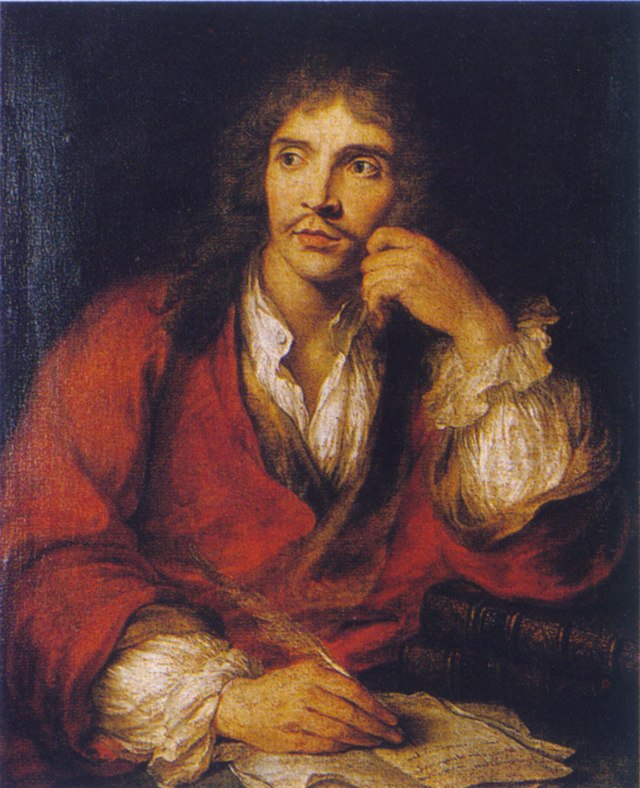
Charles Coypel (dessin) & François Joullain (gravure) (Wikimedia.commons)
My computer truly harmed my post on Les Femmes savantes. It devoured entire sections. So, I will publish it again, when it has been revised. First, I must rest. I had not kept an entire copy of the post in Word.
It is interesting to see that in Les Femmes savantes, Molière transferred the power vested in men to a tyrannical woman. The play is not about knowledge on the part of woman, but on the very genuine abuse young women suffered in seventeenth-century France. One marries a person one is attracted to and who will be a friend for life.
Trissotin and Vadius are pedants who can no more control their anger than Philaminte. To make matters worse, Trissotin is also trying to marry Henriette so he can help himself to the family’s wealth. He’s a parasite.
A knowledgeable woman would not be fooled by pedants and swindlers. As for Trissotin and Vadius, they would not be allowed in a Salon.
Now that the papers have been signed, it could well be that a petit savant will be allowed entrance into the world. In French venir au monde means to be born.
I did not include a discussion of Les Femmes savantes in my thesis. I worked on the problematic plays. Henriette resembles Tartuffe‘s Elmire, Orgon’s wife, an admirable woman.
Events are definitely keeping me humble. In comedy, this is the place to be.
Love to everyone 💕
J. P. É. Martini: Plaisir d’amour (1785) for soprano and fortepiano / Le Poème Harmonique

Molière by Charles Coypel (wiki2.org.)
© Micheline Walker
27 March 2019
WordPress


Chagrin d’amour dure toute la vie…
I’m waiting for the definitive version of your post on Le femmes savantes, but take all the time you need 🙂
LikeLike
It’s done. One difficulty I encounter is finding the English version of a quotation. However, Wikisource and Gutenberg use fine translations. The Internet is a good way of publishing because one may insert pictures and correct material. I thank you for writing. 🙂
LikeLiked by 1 person
That’s right: among the advantages of Internet publishing, the ones you mentioned are the most valuable.
I’m very fond of your blog 🙂
LikeLike
The Internet is wonderful. One can combine words, music, pictures, etc. And one can use links. I love it. Best. 🙂
LikeLiked by 1 person
Dammit
LikeLike
Derrick,
How could the computer destroy my text. My Word copy was also inaccurate. Sentences have moved to other places. I have refurbishied my text. I may have to purchase a better computer. I would like to continue providing information and a little entertaining in posts. Molière is not a mystery. I hope you are getting there. 🙂
LikeLiked by 1 person
I am, thank you, Micheline
LikeLike
Good
LikeLiked by 1 person